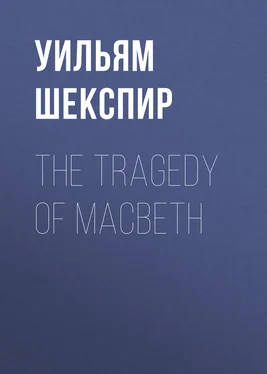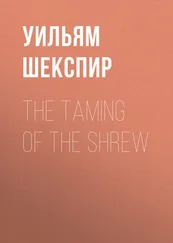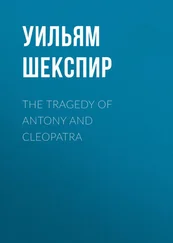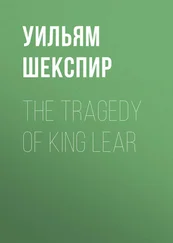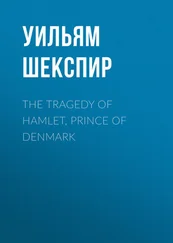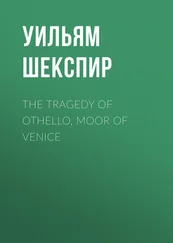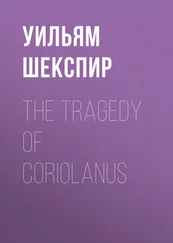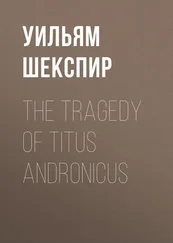Уильям Шекспир - The Tragedy of Macbeth
Здесь есть возможность читать онлайн «Уильям Шекспир - The Tragedy of Macbeth» — ознакомительный отрывок электронной книги совершенно бесплатно, а после прочтения отрывка купить полную версию. В некоторых случаях можно слушать аудио, скачать через торрент в формате fb2 и присутствует краткое содержание. Жанр: Европейская старинная литература, Драматургия, foreign_dramaturgy, на английском языке. Описание произведения, (предисловие) а так же отзывы посетителей доступны на портале библиотеки ЛибКат.
- Название:The Tragedy of Macbeth
- Автор:
- Жанр:
- Год:неизвестен
- ISBN:нет данных
- Рейтинг книги:4 / 5. Голосов: 1
-
Избранное:Добавить в избранное
- Отзывы:
-
Ваша оценка:
- 80
- 1
- 2
- 3
- 4
- 5
The Tragedy of Macbeth: краткое содержание, описание и аннотация
Предлагаем к чтению аннотацию, описание, краткое содержание или предисловие (зависит от того, что написал сам автор книги «The Tragedy of Macbeth»). Если вы не нашли необходимую информацию о книге — напишите в комментариях, мы постараемся отыскать её.
The Tragedy of Macbeth — читать онлайн ознакомительный отрывок
Ниже представлен текст книги, разбитый по страницам. Система сохранения места последней прочитанной страницы, позволяет с удобством читать онлайн бесплатно книгу «The Tragedy of Macbeth», без необходимости каждый раз заново искать на чём Вы остановились. Поставьте закладку, и сможете в любой момент перейти на страницу, на которой закончили чтение.
Интервал:
Закладка:
Enter Lady Macbeth, reading a letter.
LADY MACBETH. "They met me in the day of success, and I have
learned by the perfectest report they have more in them than
mortal knowledge. When I burned in desire to question them
further, they made themselves air, into which they vanished.
Whiles I stood rapt in the wonder of it, came missives from
the
King, who all-hailed me 'Thane of Cawdor'; by which title,
before, these weird sisters saluted me and referred me to the
coming on of time with 'Hail, King that shalt be!' This have
I
thought good to deliver thee, my dearest partner of
greatness,
that thou mightst not lose the dues of rejoicing, by being
ignorant of what greatness is promised thee. Lay it to thy
heart,
and farewell."
Glamis thou art, and Cawdor, and shalt be
What thou art promised. Yet do I fear thy nature.
It is too full o' the milk of human kindness
To catch the nearest way. Thou wouldst be great;
Art not without ambition, but without
The illness should attend it. What thou wouldst highly,
That wouldst thou holily; wouldst not play false,
And yet wouldst wrongly win. Thou'ldst have, great Glamis,
That which cries, "Thus thou must do, if thou have it;
And that which rather thou dost fear to do
Than wishest should be undone." Hie thee hither,
That I may pour my spirits in thine ear,
And chastise with the valor of my tongue
All that impedes thee from the golden round,
Which fate and metaphysical aid doth seem
To have thee crown'd withal.
Enter a Messenger.
What is your tidings?
MESSENGER. The King comes here tonight.
LADY MACBETH. Thou'rt mad to say it!
Is not thy master with him? who, were't so,
Would have inform'd for preparation.
MESSENGER. So please you, it is true; our Thane is coming.
One of my fellows had the speed of him,
Who, almost dead for breath, had scarcely more
Than would make up his message.
LADY MACBETH. Give him tending;
He brings great news. Exit Messenger.
The raven himself is hoarse
That croaks the fatal entrance of Duncan
Under my battlements. Come, you spirits
That tend on mortal thoughts, unsex me here
And fill me from the crown to the toe top-full
Of direst cruelty! Make thick my blood,
Stop up the access and passage to remorse,
That no compunctious visitings of nature
Shake my fell purpose nor keep peace between
The effect and it! Come to my woman's breasts,
And take my milk for gall, your murthering ministers,
Wherever in your sightless substances
You wait on nature's mischief! Come, thick night,
And pall thee in the dunnest smoke of hell
That my keen knife see not the wound it makes
Nor heaven peep through the blanket of the dark
To cry, "Hold, hold!"
Enter Macbeth.
Great Glamis! Worthy Cawdor!
Greater than both, by the all-hail hereafter!
Thy letters have transported me beyond
This ignorant present, and I feel now
The future in the instant.
MACBETH. My dearest love,
Duncan comes here tonight.
LADY MACBETH. And when goes hence?
MACBETH. Tomorrow, as he purposes.
LADY MACBETH. O, never
Shall sun that morrow see!
Your face, my Thane, is as a book where men
May read strange matters. To beguile the time,
Look like the time; bear welcome in your eye,
Your hand, your tongue; look like the innocent flower,
But be the serpent under it. He that's coming
Must be provided for; and you shall put
This night's great business into my dispatch,
Which shall to all our nights and days to come
Give solely sovereign sway and masterdom.
MACBETH. We will speak further.
LADY MACBETH. Only look up clear;
To alter favor ever is to fear.
Leave all the rest to me. Exeunt.
SCENE VI. Before Macbeth's castle. Hautboys and torches
Enter Duncan, Malcolm, Donalbain, Banquo, Lennox, Macduff, Ross, Angus, and Attendants.
DUNCAN. This castle hath a pleasant seat; the air
Nimbly and sweetly recommends itself
Unto our gentle senses.
BANQUO. This guest of summer,
The temple-haunting martlet, does approve
By his loved mansionry that the heaven's breath
Smells wooingly here. No jutty, frieze,
Buttress, nor coign of vantage, but this bird
Hath made his pendant bed and procreant cradle;
Where they most breed and haunt, I have observed
The air is delicate.
Enter Lady Macbeth.
DUNCAN. See, see, our honor'd hostess!
The love that follows us sometime is our trouble,
Which still we thank as love. Herein I teach you
How you shall bid God 'ield us for your pains,
And thank us for your trouble.
LADY MACBETH. All our service
In every point twice done, and then done double,
Were poor and single business to contend
Against those honors deep and broad wherewith
Your Majesty loads our house. For those of old,
And the late dignities heap'd up to them,
We rest your hermits.
DUNCAN. Where's the Thane of Cawdor?
We coursed him at the heels and had a purpose
To be his purveyor; but he rides well,
And his great love, sharp as his spur, hath holp him
To his home before us. Fair and noble hostess,
We are your guest tonight.
LADY MACBETH. Your servants ever
Have theirs, themselves, and what is theirs, in compt,
To make their audit at your Highness' pleasure,
Still to return your own.
DUNCAN. Give me your hand;
Conduct me to mine host. We love him highly,
And shall continue our graces towards him.
By your leave, hostess. Exeunt.
SCENE VII Macbeth's castle. Hautboys and torches
Enter a Sewer and divers Servants with dishes and service, who pass over the stage. Then enter Macbeth.
MACBETH. If it were done when 'tis done, then 'twere well
It were done quickly. If the assassination
Could trammel up the consequence, and catch,
With his surcease, success; that but this blow
Might be the be-all and the end-all – here,
But here, upon this bank and shoal of time,
We'ld jump the life to come. But in these cases
We still have judgement here, that we but teach
Bloody instructions, which being taught return
To plague the inventor. This even-handed justice
Commends the ingredients of our poison'd chalice
To our own lips. He's here in double trust:
First, as I am his kinsman and his subject,
Strong both against the deed; then, as his host,
Who should against his murtherer shut the door,
Not bear the knife myself. Besides, this Duncan
Hath borne his faculties so meek, hath been
So clear in his great office, that his virtues
Will plead like angels trumpet-tongued against
The deep damnation of his taking-off,
And pity, like a naked new-born babe
Striding the blast, or heaven's cherubin horsed
Upon the sightless couriers of the air,
Shall blow the horrid deed in every eye,
That tears shall drown the wind. I have no spur
To prick the sides of my intent, but only
Vaulting ambition, which o'erleaps itself
And falls on the other.
Enter Lady Macbeth.
How now, what news?
LADY MACBETH. He has almost supp'd. Why have you left the
chamber?
MACBETH. Hath he ask'd for me?
LADY MACBETH. Know you not he has?
MACBETH. We will proceed no further in this business:
He hath honor'd me of late, and I have bought
Golden opinions from all sorts of people,
Which would be worn now in their newest gloss,
Not cast aside so soon.
LADY MACBETH. Was the hope drunk
Wherein you dress'd yourself? Hath it slept since?
And wakes it now, to look so green and pale
At what it did so freely? From this time
Such I account thy love. Art thou afeard
To be the same in thine own act and valor
As thou art in desire? Wouldst thou have that
Which thou esteem'st the ornament of life
And live a coward in thine own esteem,
Letting "I dare not" wait upon "I would"
Like the poor cat i' the adage?
MACBETH. Prithee, peace!
I dare do all that may become a man;
Who dares do more is none.
LADY MACBETH. What beast wast then
That made you break this enterprise to me?
When you durst do it, then you were a man,
And, to be more than what you were, you would
Be so much more the man. Nor time nor place
Did then adhere, and yet you would make both.
They have made themselves, and that their fitness now
Does unmake you. I have given suck and know
How tender 'tis to love the babe that milks me-
I would, while it was smiling in my face,
Have pluck'd my nipple from his boneless gums
And dash'd the brains out had I so sworn as you
Have done to this.
MACBETH. If we should fail?
LADY MACBETH. We fail?
But screw your courage to the sticking-place
And we'll not fail. When Duncan is asleep-
Whereto the rather shall his day's hard journey
Soundly invite him- his two chamberlains
Will I with wine and wassail so convince
That memory, the warder of the brain,
Shall be a fume and the receipt of reason
A limbeck only. When in swinish sleep
Their drenched natures lie as in a death,
What cannot you and I perform upon
The unguarded Duncan? What not put upon
His spongy officers, who shall bear the guilt
Of our great quell?
MACBETH. Bring forth men-children only,
For thy undaunted mettle should compose
Nothing but males. Will it not be received,
When we have mark'd with blood those sleepy two
Of his own chamber and used their very daggers,
That they have done't?
LADY MACBETH. Who dares receive it other,
As we shall make our griefs and clamor roar
Upon his death?
MACBETH. I am settled and bend up
Each corporal agent to this terrible feat.
Away, and mock the time with fairest show:
False face must hide what the false heart doth know.
Интервал:
Закладка:
Похожие книги на «The Tragedy of Macbeth»
Представляем Вашему вниманию похожие книги на «The Tragedy of Macbeth» списком для выбора. Мы отобрали схожую по названию и смыслу литературу в надежде предоставить читателям больше вариантов отыскать новые, интересные, ещё непрочитанные произведения.
Обсуждение, отзывы о книге «The Tragedy of Macbeth» и просто собственные мнения читателей. Оставьте ваши комментарии, напишите, что Вы думаете о произведении, его смысле или главных героях. Укажите что конкретно понравилось, а что нет, и почему Вы так считаете.
